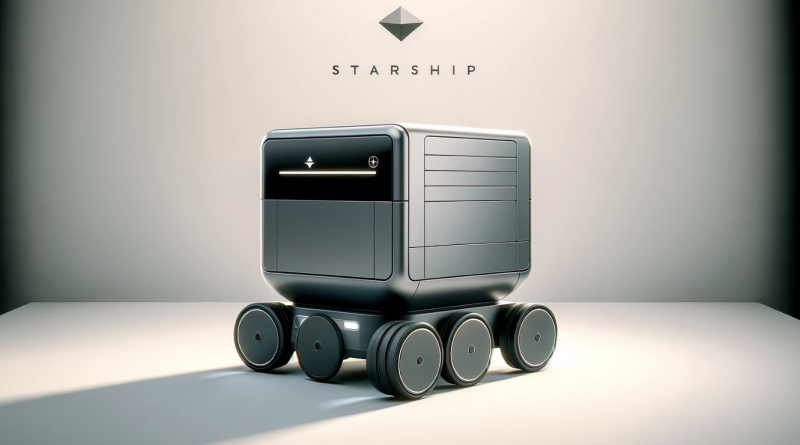Starship Technologies Secures $90 Million Funding for Autonomous Delivery Service
Starship Technologies, an innovator in autonomous delivery solutions, has secured $90 million in a recent funding round, elevating its total investment to $230 million since its establishment in 2014. The company intends to use this new investment to fuel its international expansion and meet the increasing demand for home delivery services.
Founded in 2014 by Ahti Heinla and Janus Friis in Tallinn, Estonia, and San Francisco, Starship Technologies has its roots in robotics and innovation. Heinla, who was exploring robotics in his early 40s, initially proposed a design for an autonomous terrain-navigating robot for a NASA competition aimed at collecting rock samples on Mars. Although the design was not selected, the concept inspired Heinla and Friis, a Danish entrepreneur he met during his time at Skype, to explore the potential of delivery robots on Earth.
CEO Ahti Heinla expressed the company’s readiness to expand globally, aiming to significantly impact people’s daily lives across thousands of locations worldwide.
The company faced a temporary setback in October 2023 when its food delivery service at Oregon State University Corvallis was suspended due to a bomb scare. However, Starship Technologies’ distinctive robots have since become a familiar presence in various cities across Europe and the United States, boasting over six million deliveries and presenting a solution to the logistical challenges of last-mile delivery.
The funding round was led by Plural and Iconical, with Taavet Hinrikus of Plural acknowledging Starship’s readiness for accelerated growth and its path towards becoming one of Europe’s leading global companies.
Operating in 80 locations worldwide, including the U.S., the U.K., Germany, Denmark, Estonia, and Finland, Starship’s robots have delivered everything from groceries to corporate documents, cutting down on traditional vehicular use and carbon emissions.
Starship Technologies is tackling the expensive and environmentally detrimental aspects of last-mile delivery by offering a more sustainable and cost-efficient alternative. With the online food delivery market expected to grow significantly by 2030, Starship’s initiatives are set to play a crucial role in reducing carbon emissions in Europe.
The robots, boasting 99% autonomy, can navigate complex environments and safely avoid obstacles, thanks to a decade of technological refinement. The recent introduction of wireless charging at George Mason University enhances their operational efficiency by allowing for autonomous recharging.
This funding will enable further advancements in AI, technology, and wireless charging infrastructure for Starship Technologies, supporting its expansion into new markets and the development of its delivery-as-a-service (DaaS) product. The company’s partnerships with entities like Bolt, Co-Op, Aramark, Sodexo, Chartwells, and Grubhub highlight the growing reliance on its robotic delivery solutions.

